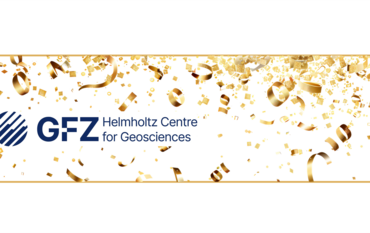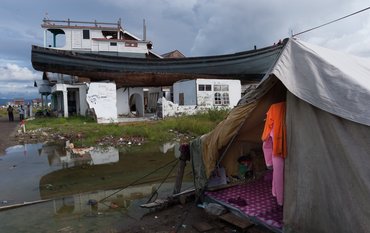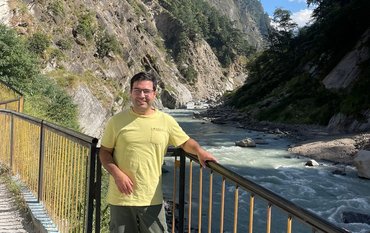On 21 June, the international training course 2023 “Seismology and Seismic Hazard” was launched at the Telegrafenberg in Potsdam. Twenty-two participants from 18 countries were selected from a broad field of applicants and invited to the course. They were welcomed by the Scientific Director of the GFZ, Susanne Buiter, by Alexander Rudloff in his function as Secretary General of the “International Union of Geodesy and Geophysics” (IUGG) and by Torsten Dahm, Director (acting) of the Department 2 “Geophysics”.
For three weeks they will be trained by experts of the GFZ and European partner institutions in the fields of seismology, engineering seismology, seismic hazard assessment, improved monitoring and modelling. In the fourth week, the programme includes participation in the IUGG General Assembly in the section of the “International Association of Seismology and Physics of the Earth's Interior” (IASPEI) in Berlin.
Courses offered within the framework of the UNESCO education and training programme
The GFZ Section 2.1 “Earthquake and Volcano Physics” has been running the courses annually since 1992 within the framework of the UNESCO training and further education programme and with the support of the Federal Foreign Office. As the only offer worldwide, the courses combine the joint consideration of both seismology and the subsequent seismic hazard and risk assessment for earthquakes.
The programme is aimed at participants from developing countries and countries in transition. The courses take place alternately at the GFZ in Potsdam and with partner institutions as regional courses in Latin America, Asia and Africa.
Since 1992, about 1000 people have been trained within the framework of these courses. At the same time, this supports the formation of networks with the GFZ.
This year, the participants come from Albania, Algeria, Argentina, Brazil, Cameroon, Chile, Colombia, Eritrea, India, Indonesia, Iraq, Iran, Libya, Mongolia, Romania, Pakistan, Uganda and Turkey.
The GFZ experts come from Sections 2.1 “Earthquake and Volcano Physics”, 2.4 “Seismology”, 2.6 “Earthquake Hazards and Dynamic Risks” and 1.4 “Remote Sensing and Geoinformatics”.
The next course will already take place in October 2023 as a regional course for the Balkan region in Montenegro.






![[Translate to English:] Fire in a forest, smoke rising, aerial view from above](/fileadmin/_processed_/8/3/csm_2025_01_06_AdobeStock_415831729_5a0e6d50d3.jpeg)









![[Translate to English:] [Translate to English:] Abror Gafurov von dem Schriftzug "Welcome to Azerbaijan" und den UN und COP Logos](/fileadmin/_processed_/2/5/csm_2024_11_Baku_COP29_Abror_Gafurov_1042faec82.jpeg)


![[Translate to English:] Martin Herold standing in front of the library on the Telegrafenberg](/fileadmin/_processed_/c/d/csm_Martin_Herold_d385ee4dd9.jpeg)
![[Translate to English:] Many people are listening to a presentation in the GFZ lecture hall.](/fileadmin/_processed_/c/a/csm_1_Bild1_hell_b9c0e9f5ed.jpeg)






![[Translate to English:] Both scientists sitting on stools in front of a wall of books in the Telegrafenberg library](/fileadmin/_processed_/6/6/csm_Buiter_Castell_DORA_4_e87cb1ea18.jpeg)
![[Translate to English:] Gruppenbild mit 4 Personen](/fileadmin/_processed_/8/d/csm_20241017_GFZ-Emmerman-Medal-005_web_reinhardtundsommer_21a414fa4a.jpeg)






![[Translate to English:] Ice landscape with five red tents](/fileadmin/_processed_/8/9/csm_Zeltlager_auf_dem_Eis_Urheberin_Jenine_McCutcheon_5ced2d523b.jpeg)